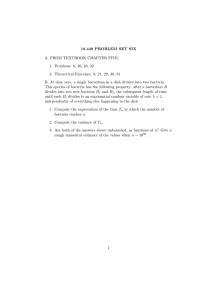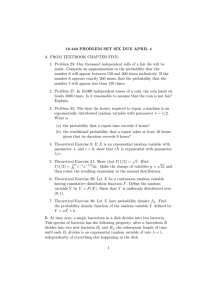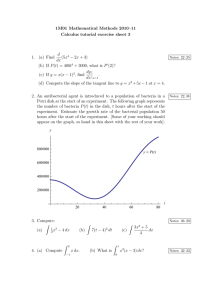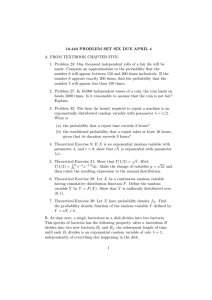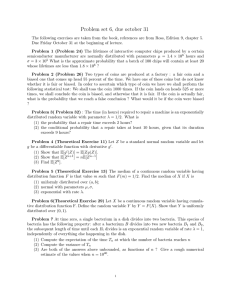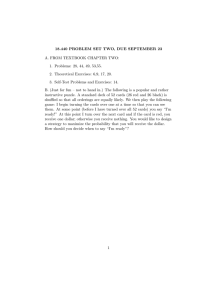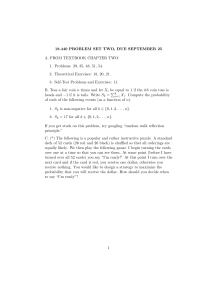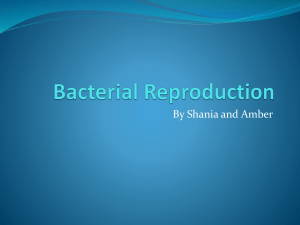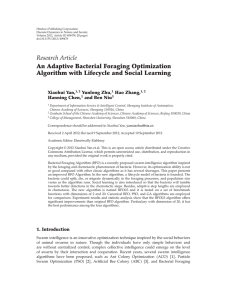18.440 PROBLEM SET FIVE, DUE OCTOBER 30 1. Problems: 60.
advertisement
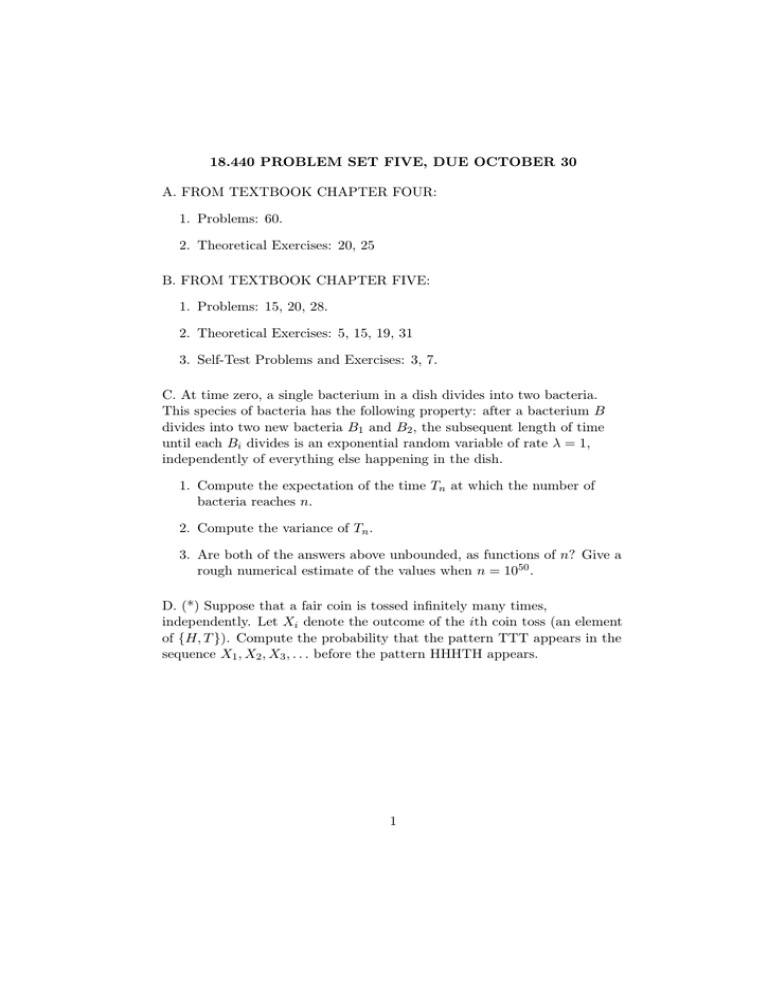
18.440 PROBLEM SET FIVE, DUE OCTOBER 30
A. FROM TEXTBOOK CHAPTER FOUR:
1. Problems: 60.
2. Theoretical Exercises: 20, 25
B. FROM TEXTBOOK CHAPTER FIVE:
1. Problems: 15, 20, 28.
2. Theoretical Exercises: 5, 15, 19, 31
3. Self-Test Problems and Exercises: 3, 7.
C. At time zero, a single bacterium in a dish divides into two bacteria.
This species of bacteria has the following property: after a bacterium B
divides into two new bacteria B1 and B2 , the subsequent length of time
until each Bi divides is an exponential random variable of rate λ = 1,
independently of everything else happening in the dish.
1. Compute the expectation of the time Tn at which the number of
bacteria reaches n.
2. Compute the variance of Tn .
3. Are both of the answers above unbounded, as functions of n? Give a
rough numerical estimate of the values when n = 1050 .
D. (*) Suppose that a fair coin is tossed infinitely many times,
independently. Let Xi denote the outcome of the ith coin toss (an element
of {H, T }). Compute the probability that the pattern TTT appears in the
sequence X1 , X2 , X3 , . . . before the pattern HHHTH appears.
1
